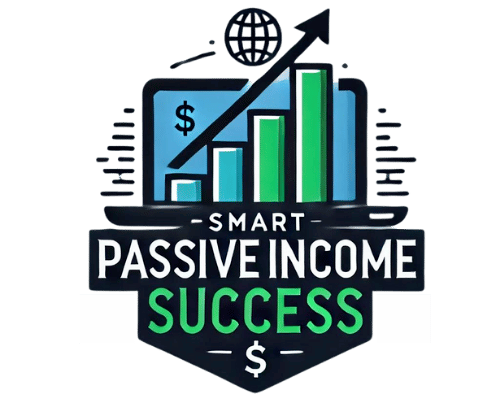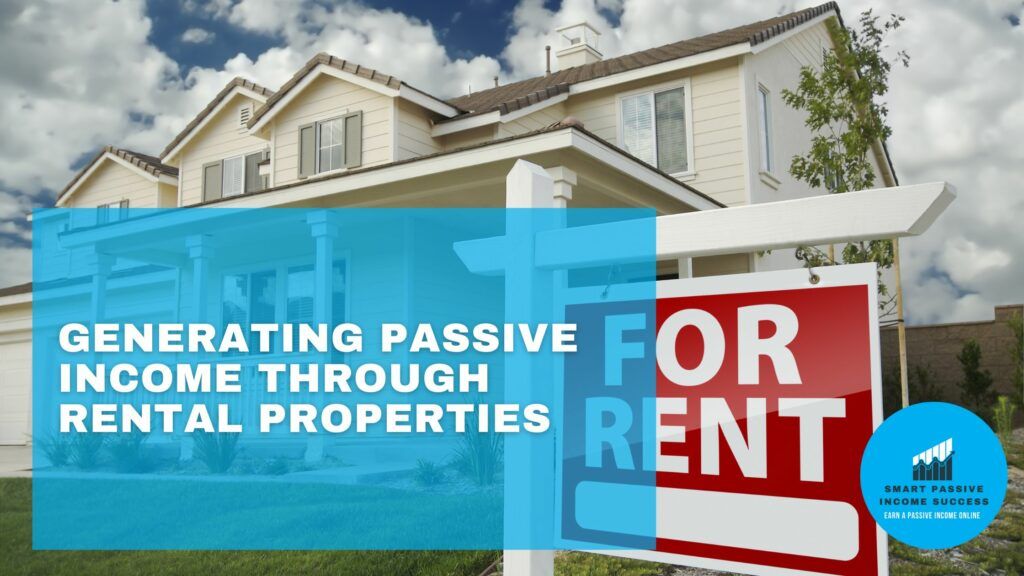If you’re interested in generating steady, long-term earnings with minimal daily effort, you’ve likely considered passive income. Real estate, and more specifically rental properties, stand out as one of the most robust avenues for creating this kind of sustained income.
For many, the appeal of rental properties lies in their dual-earning potential: they can provide regular rental income while also appreciating in value over time. This combination can offer a financial foundation that few other investment opportunities can match.
I’ll help you understand how passive income through rental properties works and uncover the benefits you can expect from this investment strategy. It’s important to be realistic about the commitments and challenges you’ll face, but with sound planning, the long-term advantages of owning rental properties can be substantial. Remember, this isn’t a get-rich-quick scheme, but a strategic approach to build wealth gradually.
As we move into the nuts and bolts of starting your journey in rental property investment, remember the key here is preparation. Whether I’m talking about securing finances, choosing the right property type, or researching potential locations, these initial steps form the bedrock of your investment’s success. Stay with me as I lay out the essential groundwork that will lead you confidently into the world of rental property investing.
Table of Contents
The Fundamentals: Getting Started with Rental Properties

I understand how the idea of earning money in your sleep can seem enticing. That’s the allure of generating passive income through rental properties. However, before the checks start rolling in, there’s groundwork to prepare. Making an informed entry into the rental property market can set the stage for success.
It all begins with a solid financial foundation. You’ll need to assess your financial readiness, which includes understanding the down payment, mortgage options, and emergency funds for maintenance and vacancies. Don’t forget due diligence on the types of rental properties that make sense for you. Are you eyeing a single-family home, an apartment unit, or perhaps a duplex? Each comes with its own set of considerations, including cost, tenant turnover rates, and potential rental income.
Location is key. The mantra ‘location, location, location’ holds true here. I urge you to conduct thorough market research to identify areas with strong rental demand and growth potential. You’ll want to pay attention to factors like safety, proximity to amenities, and employment rates because these influence how desirable your property is to tenants.
Remember, selecting the right property in the right location can lead to appreciable asset value over time. It’s not merely about the immediate cash flow but also the long-term equity build-up that can amplify your wealth.
Property Management: Key to Sustainability and Growth

Effective property management is the cornerstone of sustaining your rental investment and ensuring it grows. It’s much more than just collecting rent; it involves maintaining the property, keeping tenants happy, and staying on top of legal requirements.
If you’re considering self-management, it’s vital to assess whether you have the time and skills needed. It’s not for everyone. You must be ready to handle middle-of-the-night emergencies, understand landlord-tenant laws, and deal with the nuances of property upkeep.
Hiring a professional property manager can be a game-changer. They come with expertise in marketing your rental, vetting potential tenants, and managing maintenance issues. Although they charge a fee, usually a percentage of the rental income, they often save you money in the long run through efficiency and tenant retention.
Prioritize tenant satisfaction, as it directly impacts your turnover rates and ultimately, your rental income. Responsive communication, prompt repairs, and a respectful relationship can make tenants more likely to renew their leases.
Financial Planning: Maximizing Returns on Your Investment

When it comes to generating passive income from rental properties, financial planning is my North Star. It involves more than just collecting rent. Here, I’ll break down the essential elements of financial planning to ensure that your investment not only pays off but also grows consistently over time.
Understanding the financing options available for purchasing rental properties is a good starting point. You’ve got traditional mortgages, which are common, but there are also government-backed loans, private lending, and seller financing. I scrutinize each option to identify which will align best with my investment strategy and financial situation.
Tax considerations are another critical aspect. It’s not just about what you earn, but also about what you get to keep. I investigate potential tax deductions like mortgage interest, operating expenses, property taxes, and depreciation. Sometimes these can significantly offset my taxable income from the property, enhancing overall profitability.
Let’s talk cash flow, the lifeblood of rental income. Calculating cash flow is straightforward: I subtract all my expenses from my rental income, and what’s left is my cash flow. But here’s a key piece of advice: DON’T overlook capital expenditures or potential vacancies in your calculations. Optimizing cash flow means keeping expenses low, often by looking for cost-effective property improvements and keeping my units competitive in the market.
Consider these strategies as preludes to the next section where I’ll explore how to scale up. Once your finances are in check and you have a solid grasp of the principles outlined here, you’re better positioned to expand your portfolio. The growth phase gets exciting as we talk about adding more properties, leveraging current assets, and refining your investment approach.
Turn Your Passion into Profits
Scaling Up: Building a Profitable Rental Property Portfolio

If you’ve reached a point where the income from your initial rental properties is stable and the management process has become routine, you may be eyeing the next step: growing your portfolio.
Growth should be approached with both caution and strategy. It’s not simply about acquiring more properties; it’s about making smart investments that align with your financial goals. As your portfolio expands, you should balance risk and ensure you’re not overleveraged.
To mitigate risks, consider diversifying your investments. Look beyond single-family homes and explore multifamily units, commercial properties, or even real estate in different markets. Diversification can help protect your assets against market fluctuations.
Leveraging your existing equity can prove powerful in helping you acquire additional properties. With the right property appreciation, you might opt to refinance your existing properties to unlock equity that can serve as a down payment on new investments.
Finally, remember that scaling up your rental property portfolio doesn’t mean going at it alone. Building a network of real estate professionals, joining investor groups, and possibly collaborating with experienced partners can provide the insights and resources necessary for continued success.
In conclusion, transitioning from a single-property landlord to a real estate investor with multiple properties is a significant feat. It requires careful planning, a deep understanding of the market, and a solid financial strategy. Balancing these elements can lead to a robust and profitable rental property portfolio that continues to generate passive income over time.






